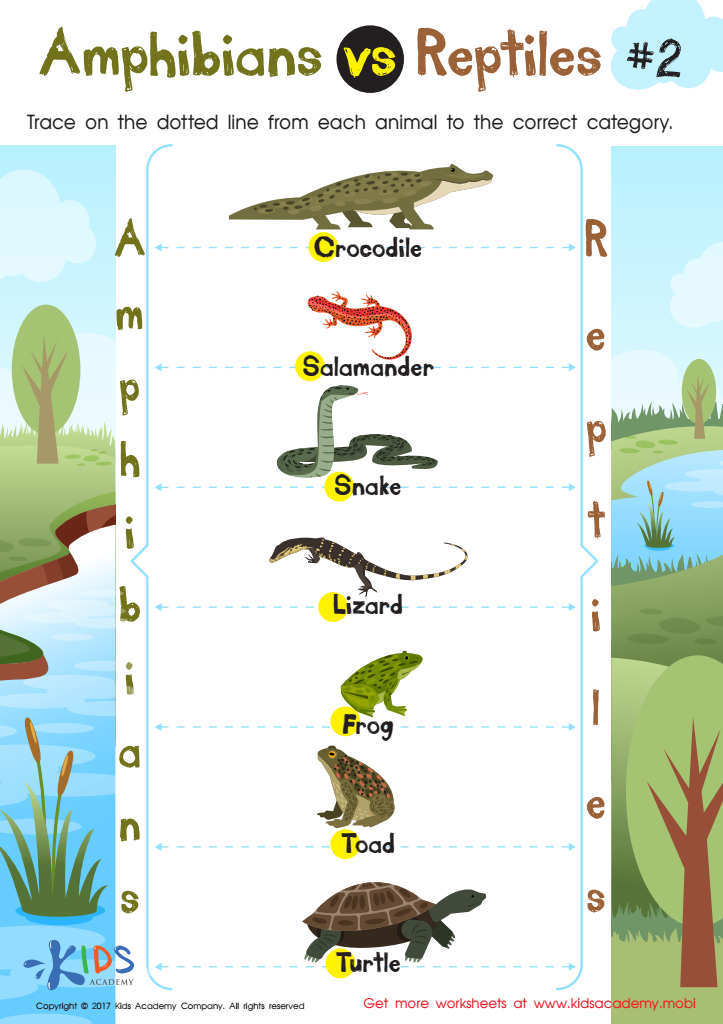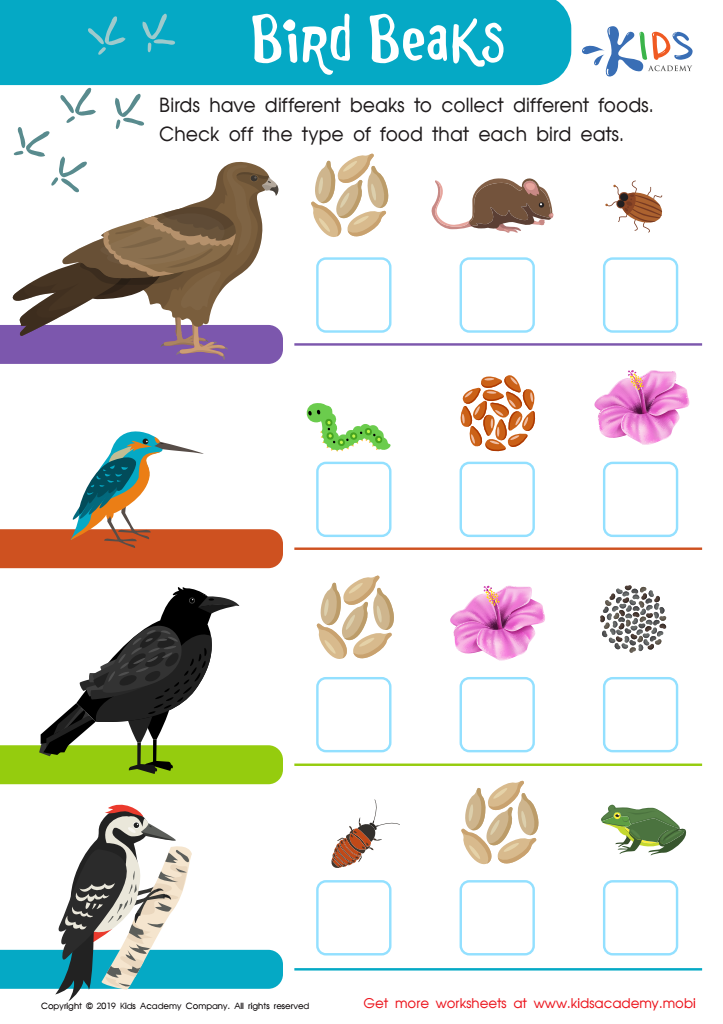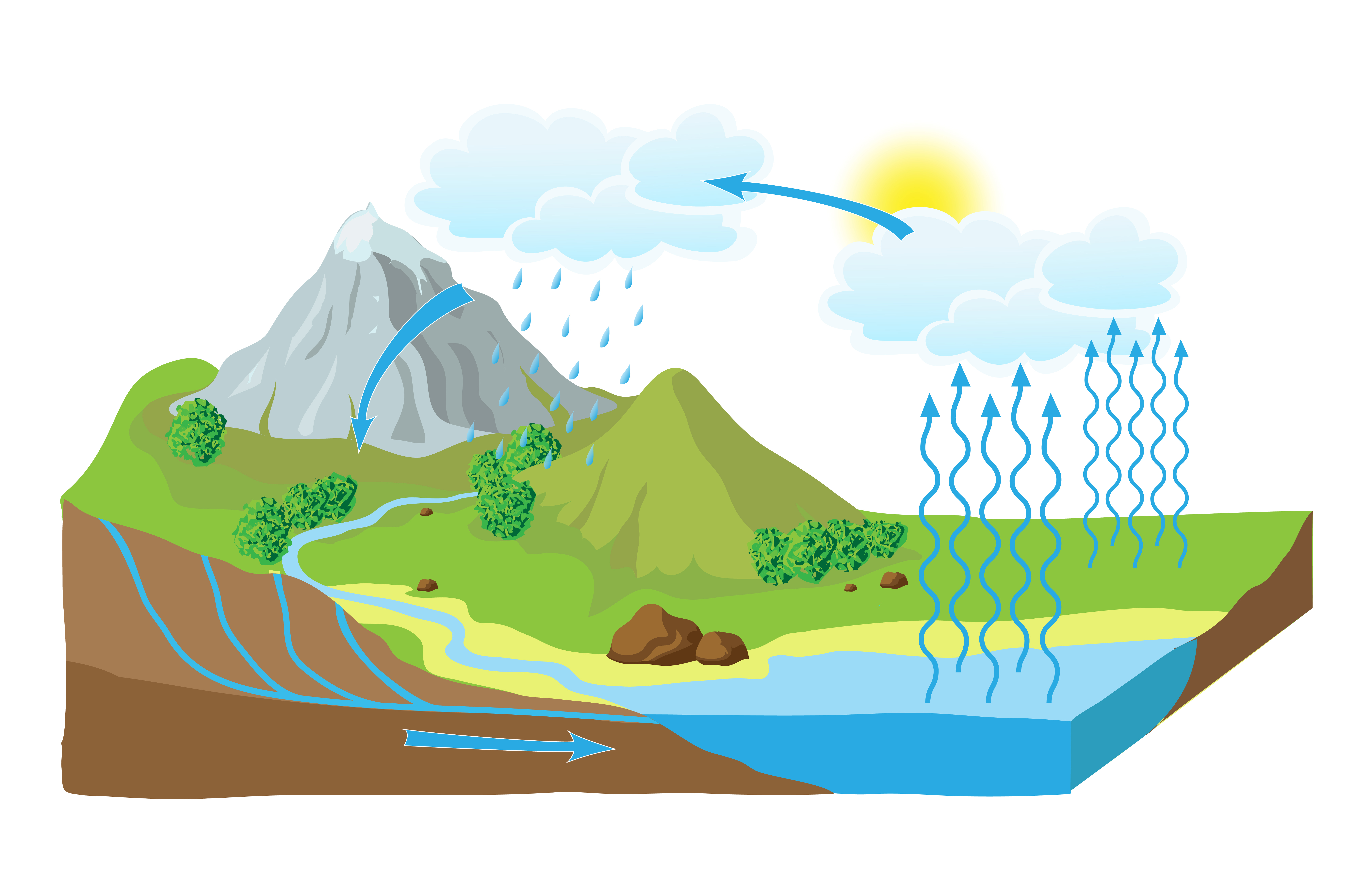Classification skills Normal Science Worksheets for Ages 6-9
5 filtered results
-
From - To
Empower young minds with our Classification Skills Normal Science Worksheets, tailor-made for children aged 6-9. Designed to enhance crucial critical thinking and cognitive abilities, these worksheets guide kids through sorting objects, identifying patterns, and classifying by various categories. Each engaging activity is aligned with educational standards, making these robust resources perfect for both classroom and at-home learning. Foster a deeper understanding of the natural world and build foundational scientific skills that pave the way for future learning. Start your child’s journey into science today with our easy-to-use, printable worksheets from Kids Academy!


Matter: Assessment 1 Worksheet


Amphibians vs Reptiles Worksheet for 3rd Grade


Bird Beaks Worksheet


Animals and Plants: Assessment 2 Worksheet


Space: Assessment 2 Worksheet
Classification skills are pivotal for children aged 6-9 as they lay the groundwork for critical thinking and scientific understanding. At this developing stage, children's brains are incredibly receptive to new information, and categorizing objects helps them make sense of their surroundings. Through classification, kids begin to observe common characteristics, differentiate between various items, and recognize patterns. This process enhances their cognitive development, enabling them to think more logically and make informed decisions.
For parents and teachers, fostering classification skills in normal science activities is an investment in a child’s academic success and daily life competencies. Sorting objects by size, shape, color, or function readies young minds for more complex subjects like math, reading, and science. Children learn to consider multiple attributes and criteria when solving problems, a vital skill for academic proficiency.
In science, classification is essential because it creates a structured approach to understanding the natural world. Engaging children in sorting leaves, rocks, or animals fosters a deeper appreciation and curiosity about life sciences. Such activities not only nurture a love for learning but also prepare children for future educational challenges by developing rigorous analytical and observational skills. Ultimately, these foundational skills are interconnected and essential for holistic development and lifelong learning.

 Assign to the classroom
Assign to the classroom




.jpg)






